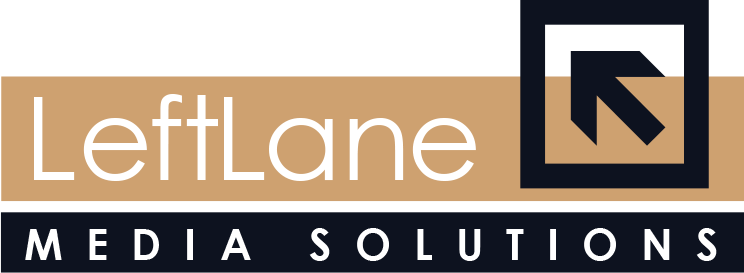On average, small businesses need to budget anything between $2,000 and $15,000 for a website design.
Factors influencing the cost include the design’s customization level, the incorporation of functionalities like e-commerce capabilities and interactive elements, and the complexity of the backend infrastructure.
Additionally, ongoing website costs for hosting, domain renewal, and security updates play a big role in budgeting for a website.
In this article, we’re breaking down the average cost of web design for a small business.
Average Cost of Website Design for Small Business
When it comes to launching a website for your small business, budgeting is important. Costs can vary based on several factors, including the complexity of the design, the number of pages, and any specialized functionalities you might need.
To give you a clearer picture, let’s break down the typical price ranges you might expect.
Basic Websites
For a basic website with a few pages that include essential business information, services, and contact details, prices can range from $3 to $299 per month.
If you want to build with WordPress, expect to shell out between $100 to $1,000 upfront.
These types of websites usually rely on template designs and have minimal custom features, which makes them the most budget-friendly option.
E-Commerce Websites
If you’re looking to set up an online store, the costs start to increase due to the need for additional features like shopping carts, product pages, payment systems, and security measures.
E-commerce website development can cost between $20 and $20,000, depending on the scale of the store and the complexity of the functionalities required. For example, hosting your site on Shopify and other e-commerce platforms only costs you $20 to $300 per month. Meanwhile, custom online stores are worth $2,000-$20,000.
Customized Websites
For customized websites that require unique designs and advanced functionalities, such as integration with back-end systems, customized content management systems, or advanced security features, the costs can start at $10,000 and go up significantly from there.
These websites are customized to specific business needs and often involve extensive planning, design, development, and testing.

Other Costs to Consider
These are some additional costs when designing a website for small business:
Domain Name Registration (Typically $10-$20 per year)
Securing a domain name gives your website its unique address on the internet. For example, purchasing a domain like “insertbusiness.com” from providers like GoDaddy or Namecheap costs you anywhere from $10 to $20.
Web Hosting (Ranges from $20 to $200+ per year)
Web hosting services store your website data and make it accessible on the internet. Costs vary based on the type of hosting (shared, VPS, dedicated) and the level of service provided by companies such as Bluehost or SiteGround.
Website Maintenance ($500 to $1,000+ annually)
Regular maintenance ensures your website functions smoothly, including software updates, security patches, and fixing bugs. This service is a priority for a website to help maintain the website’s performance and security.
Content Creation
Quality content, whether text, images, or videos, enhances user engagement. For instance, hiring a professional writer to craft web copy lets users know about your company and services.
- Copywriting: Web copies typically range from $300 to $1,000+ per page. The actual price varies based on the copywriter’s experience, skills, and deliverables.
- Multimedia production: Video production can cost approximately $1000 per minute of video. Meanwhile, a professional photographer charges between $25 and $500 to capture a unique picture for your website. Using royalty free images, on the other hand, is cheaper at less than $100.
- Content writing: Prices can range from $10 to $200+ per article or blog post, depending on the niche, depth of research, and expertise required.
Search Engine Optimization ($500 to $6,000+ per month)
SEO services improve your website’s visibility on search engines like Google, which involves keyword research, content optimization, and link building. Providers like Moz or SEMrush offer various tools and services to boost your search rankings. Having a content management system can help with SEO too.
E-commerce Integration ($2,000 to $25,000+)
Implementing e-commerce functionalities, such as payment gateways, shopping carts, and secure checkout processes, is essential for online stores. Platforms like Shopify or WooCommerce provide these services at various price points depending on your needs.
Custom Plugins and Extensions ($100 to $1,000+)
Custom plugins enhance your website’s functionality. For example, a custom booking plugin for a hotel website might cost more if tailored specifically to the business’s needs rather than using a pre-built solution.
Third-party Service Integration (Varies Based on Service)
Integrating services like CRM systems, email marketing tools (like MailChimp), or appointment scheduling enhances functionality and efficiency. Costs depend on the complexity of integration and the provider’s pricing structure.
5 Factors Influencing the Cost of Website Design
When determining the average cost of website design for small businesses, several factors come into play. Each of these elements can significantly impact the overall price, and understanding them helps business owners make informed decisions. Below, we explore the key factors that influence website design costs.
1. Type of Website
The type of website a business needs is one of the primary factors affecting web design cost. Websites can range from simple informational pages to complex e-commerce platforms. Here’s a breakdown:
- Informational websites: These sites are generally the least expensive. They include basic pages like home, about, services, and contact. They are ideal for small businesses that need an online presence without extensive functionality.
- E-commerce websites: These require more advanced features, such as product listings, shopping carts, and secure payment gateways. E-commerce website development and maintenance are more resource-intensive, which lead to higher costs.
- Custom web applications: These are tailored to specific business needs and include unique functionalities like customer portals, booking systems, or interactive tools. Custom applications require specialized development skills from a website designer/developer. They are also time-consuming, ultimately increasing the cost.
2. Website Features and Functionality
The features and functionality integrated into the website also play a crucial role in determining cost.
Basic features like contact forms, social media integration, and blogs are relatively easy to implement by a web designer. Also, they don’t significantly add to the cost.
On the other hand, advanced features include membership systems, booking functionalities, or user dashboards. These require more development work and testing, which increases the overall cost of web design.
3. Design Complexity
Design complexity directly influences the cost of website design. A website’s design can range from simple, template-based layouts to highly customized and intricate designs.
Using pre-designed templates can significantly reduce costs. These templates are often customizable but have limitations in terms of uniqueness and flexibility.
Meanwhile, custom designs are created by website designers from scratch to match the business’s branding and specific needs. They provide a unique look and feel. However, they are more expensive due to the additional time and expertise required.
4. Number of Pages
The number of pages on a website is another critical factor affecting website design pricing.
The more pages your website has, the more expensive it is. That’s because more pages mean more content creation, design work, and development. Each page needs to be designed, written, and optimized individually, which costs a lot of money.
5. Security
Website security is important for every business, especially for e-commerce sites or those handling sensitive information. Implementing robust security measures can increase the overall cost of website design.
For example, security plugins and services are essential for protecting a website. These include regular updates, malware scanning, and firewalls. However, they often require ongoing subscriptions or one-time setup fees, which can be expensive.
Web Design For Small Businesses With LeftLane Media
If you have a project and want to get started with LeftLane Media, fill out their quote form.
You can also contact them by dialing 714-676-9253 or visiting their office located at 3040 Saturn St #205, Brea, CA 92821.
FAQs About Average Cost of Website Design for Small Businesses
How much do web designers typically charge for a small business website?
Web designers may charge anywhere from $500 to over $10,000, depending on whether the project is a basic template-based design or a highly customized design tailored specifically to your business needs.
What is the cost difference between a WordPress site and a custom-coded site for small businesses?
A WordPress site can often be more cost-effective, ranging from $500 to $5,000, while custom-coded websites start at a higher base cost due to the need for specialized programming, potentially costing $10,000 or more.
Can I reduce the costs if I design my own website using a website builder?
Yes, designing your own website using website builders can significantly reduce costs, typically ranging from $100 to $300 annually, excluding any premium features you might choose to add.
Is it worth hiring a professional web developer or a website development agency for my website?
Hiring a professional web developer or web design agency is worthwhile as they can deliver a more reliable, professional-looking custom website that aligns with your business goals.
